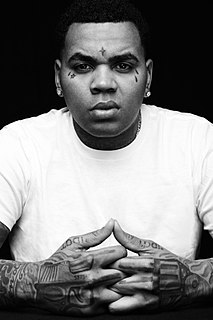A Quote by Ryan Adams
It's hard to be bipolar and bicoastal at the same time.
Related Quotes
I learned that I suffered from bipolar II disorder, a less serious variant of bipolar I, which was once known as manic depression. The information was naturally frightening; up to 1 in 5 people with bipolar disorder will commit suicide, and rates may even be higher for those suffering from bipolar II.
I don't want to be caught ... ashamed of anything. And because generally someone who has bipolar doesn't have just bipolar, they have bipolar, and they have a life and a job and a kid and a hat and parents, so its not your overriding identity, it's just something that you have, but not the only thing - even if it's quite a big thing.
It's cool. You can laugh about it, but at the same time you can't really get caught up in it because you're here for a job and it's to win football games. Being on this team, being with the head coach here and the quarterback we have keeps you humble. It keeps you hard working. You can laugh and giggle about stuff, but then at the same time you've got to make sure you're prepared and practicing hard still.
For bipolar in adults, I think there's pretty good agreement about what this looks like. For bipolar in children, there is some considerable debate about where are the boundaries. At the mild end, are these just kids who are active? Is this the class clown at the very severe - is this something other than a mood disorder?


































